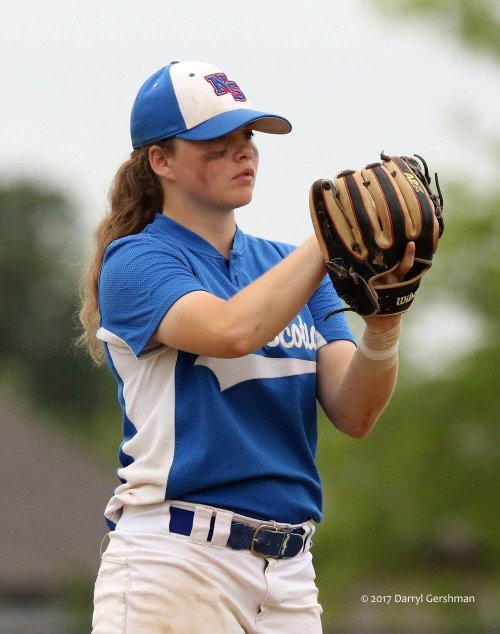LOWER SACKVILLE: A mental illness and fear of failure led Brogan MacNeil to give up a sport she had come to excel at and love.
Diagnosed with clinical depression and anxiety in late 2017, MacNeil would like to see coaches in sports be open to discussing with their player’s mental health issues.
“Sometimes it could be the failure when someone gets frustrated, but there could be other things that are going on,” said MacNeil. “The mental health system for kids like me and those that are severe really needs to improve.”
She explained why she put down the ball glove and bat.
“I gave ball up because I couldn’t take the pressure and stress of having depression and what it takes to play ball, “said MacNeil, who just graduated. “It takes a lot of failures to become good. It was mentally draining and becomes bigger to overcome when you already feel like you’re failing.”
The issue is that one has to be an extreme case to even get into the system, and MacNeil and mom Lesley feel that isn’t the way it should be. The system doesn’t have the same level of available resources for patients, with mental illness. As an example, a child with other critical illnesses being assigned a medical team to help, but for mental health, there is a feeling of being very much left on your own.
“I don’t think there’s a lack of willingness for physicians and therapists to help, I just don’t think there are enough,” said Lesley.
After going to a game in May in Eastern Passage, she decided to take the sport up again and is on the Baseball N.S. team that competed in Stonewall, MB. at the U-21 Women’s Invitational Championships.
“I missed being around the team, the girls, and playing,” she said. “That’s when I decided I would try to play again.”
MacNeil said it’s not easy for her to cope but she manages to do it.
“It’s more after the game is where it’s hard for me,” she said. “It might sound odd, but I’ve turned to painting or watching films,” as ways of helping deal with depression.
She explained why she wanted to be the voice and face, to bring the issue forward for all to see so change can be made.
“Last year, my coach at the beginning of the year did a small program on how to cope with failure. It was a brief session with a speaker,” she said. “I feel that Baseball N.S. as a whole should have more programs, even other sports should do it.
“Physical sports are demanding and draining and 100 per cent a mental effort. There needs to be other resources to help support the players if they need them.”
She hopes her coming forward will help begin the discussion within the baseball organizations and other sports.
“I think there’s a misconception that depression is just a little bit of sadness that you should get over, or from a coaching perspective the first response is to tell a player to change their attitude,” said MacNeil. “It’s not just a case of getting over it.”
“I hope that it becomes more widely recognized. It’s not just an attitude change that needs to happen. It shouldn’t be feared and misunderstood, as athletes we need this to be out in the open, we need help and support.”
Where You Can Get Help
Mental Health Mobile Crisis Telephone Line – call 902-429-8167 or 1-888-429-8167 (toll free). To learn more about these services visit the IWK Health Centre website: http://www.iwk.nshealth.ca/mental-health
Kids Help Phone is Canada’s only national 24-hour, bilingual and anonymous phone counselling, web counselling and referral service for children and youth. 1-800-668-6868
Morneau Shepell has launched a national crisis support line that is available to anyone in need of emotional support. The crisis line can be reached at: 1.844.751.2133. This resource is available to anyone and everyone, client or not.




















